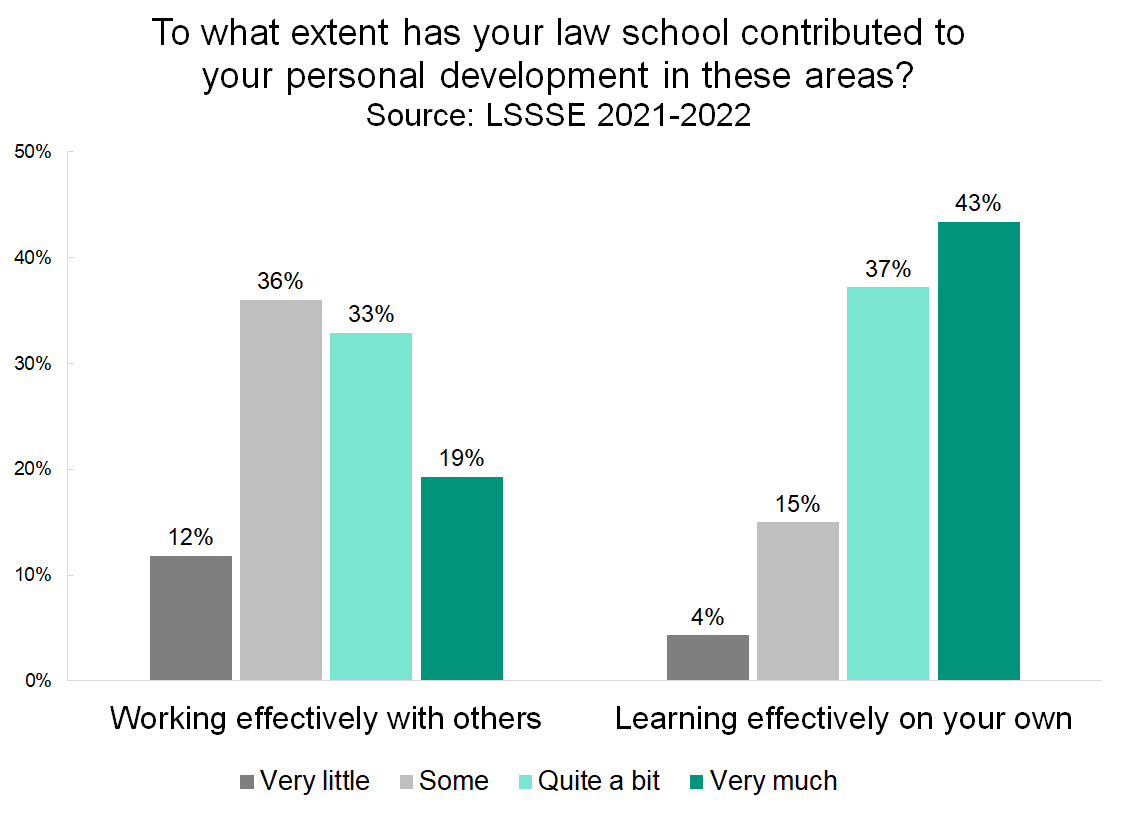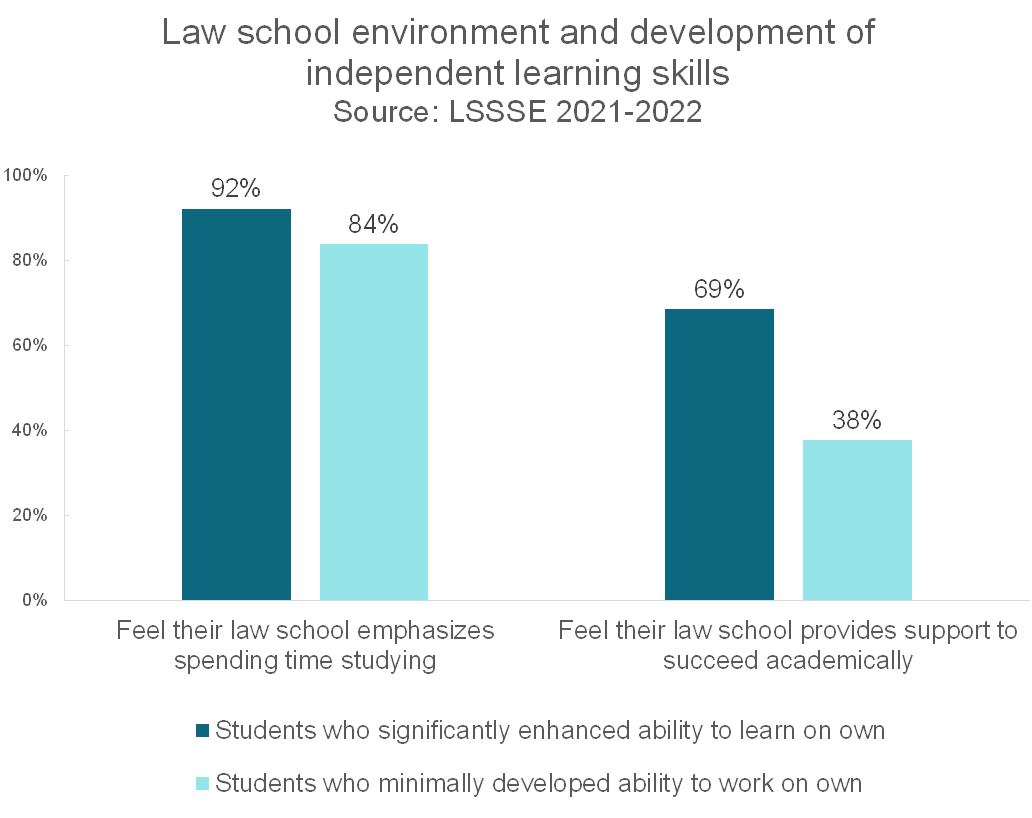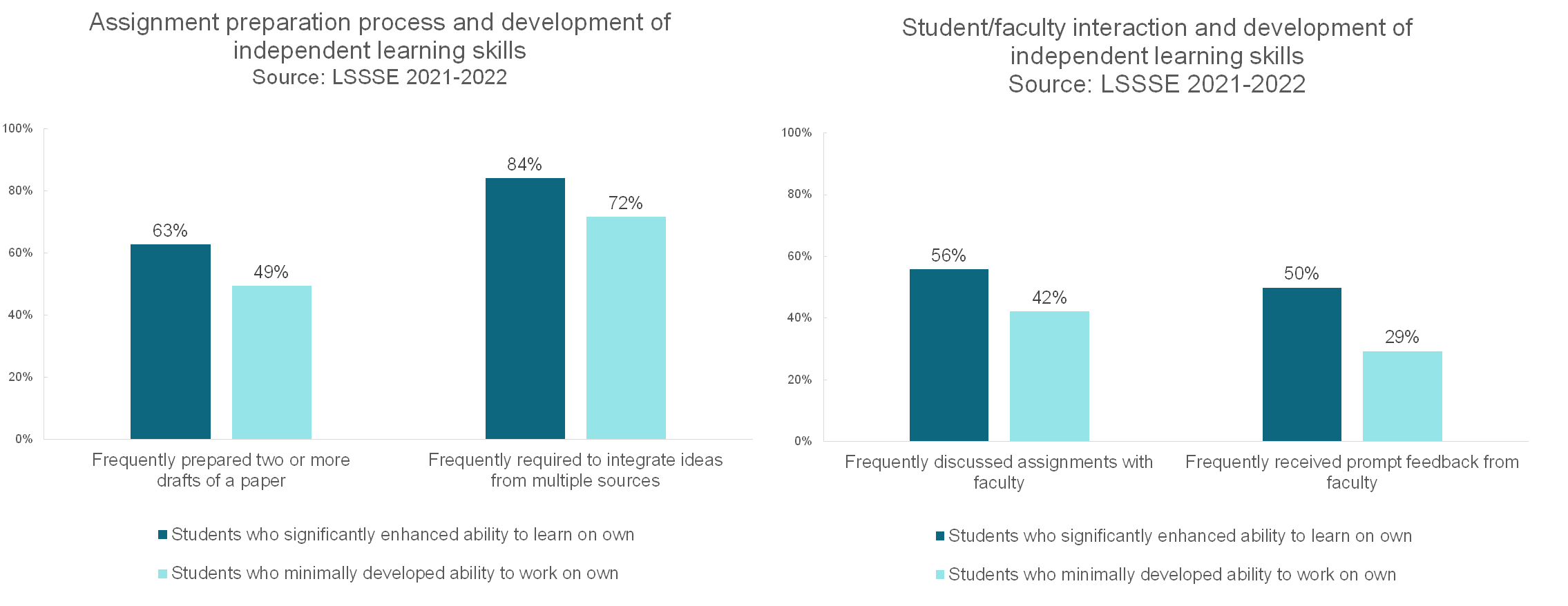Working independently and working collaboratively are both important skills for budding legal professionals. In addition to learning through classroom experiences, law students must assume responsibility for learning large amounts of material in a relatively short period of time, often independently and sometimes in small groups. We examined the extent to which law students feel that their experiences in law school have contributed to their personal development in both learning effectively on their own and working effectively with others.
Four in five law students say that law school helped them “quite a bit” or “very much” in developing the ability to learn effectively on their own. Fifteen percent say that they developed “some” skills in this area, and only four percent said they developed “very little.” By comparison, only about half (52%) of law students learned “quite a bit” or “very much” about working effectively with others. A little more than a third (36%) developed “some” skills in this area, and more than one in ten (12%) learned very little about working effectively with others.

Students who greatly enhanced their ability to work on their own generally feel both that their law school has high standards and that their law school adequately supports their academic endeavors. Nearly all (92%) of students who significantly enhanced their independent learning skills felt that their law school emphasizes spending significant amounts of time studying and on academic work compared to 84% of their colleagues who developed fewer skills in this area. Additionally, over two-thirds (69%) of students who honed their ability to learn independently felt that their law school provides the support they need to succeed academically compared to only 38% of their peers. Rigor and institutional support work together to drive student achievement.

Students who substantially enhanced their ability to learn independently were more likely to revise course assignments at least once and to engage more deeply with course content. Sixty-three percent of independent learners frequently prepared two or more drafts of a paper or assignment and 84% were frequently required to integrate ideas from multiple sources in papers or course assignments. Students who developed independent learning skills were more likely to frequently discuss assignments with faculty compared to students who developed less of an ability to learn independently. Perhaps crucially, the independent learners were more likely to frequently receive prompt feedback from faculty (50% received prompt feedback “often” or “very often”) compared to law students with less-developed independent learning skills (29% received prompt feedback “often” or “very often”). Deep, sustained learning is often an iterative process that requires feedback from experts, and this is borne out by the LSSSE data.

Next month we will look at how students who feel law school has contributed substantially to their ability to work effectively with others differ from those students who do not feel this way. We will also consider how interpersonal effectiveness skills might affect attitudes toward diversity.
